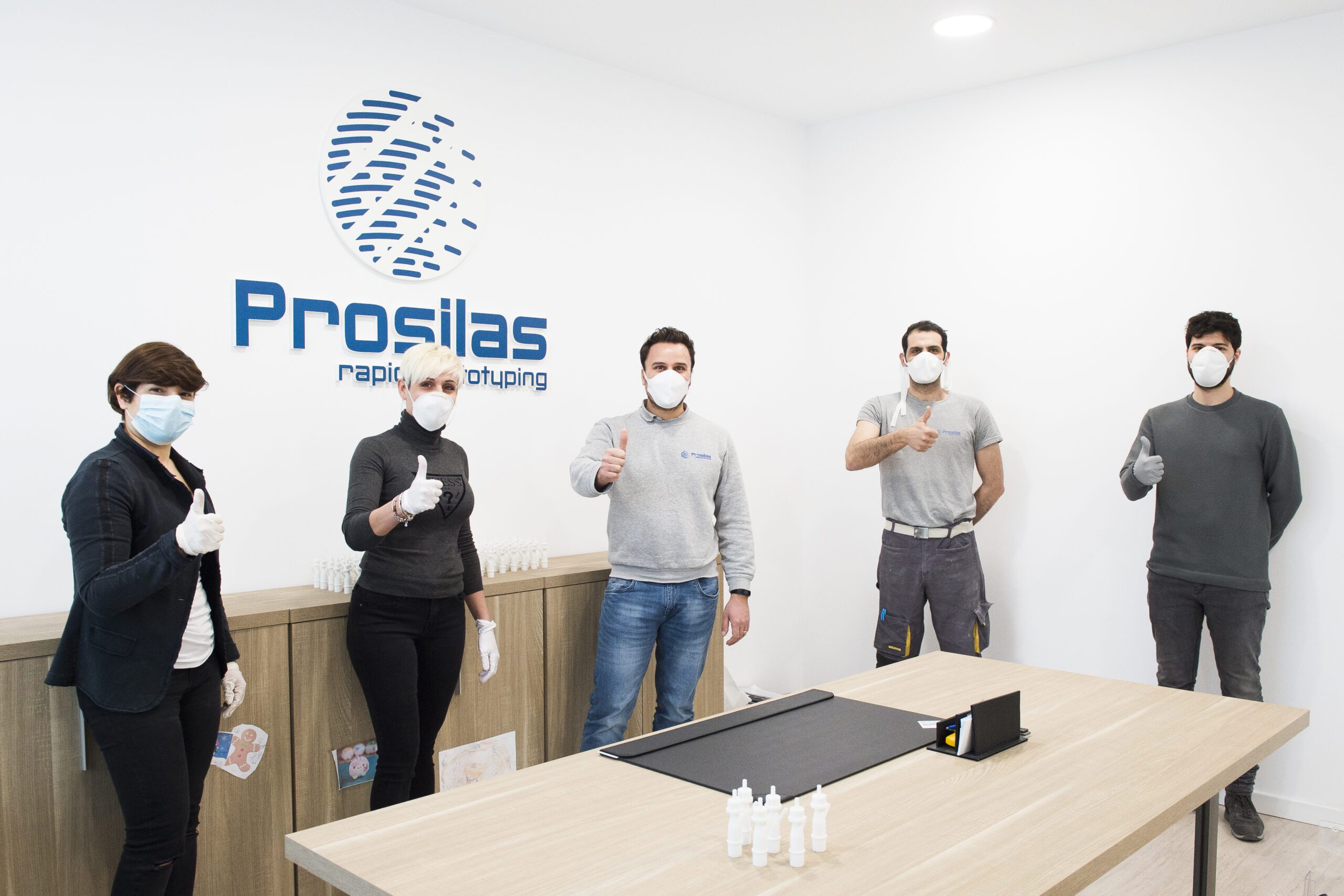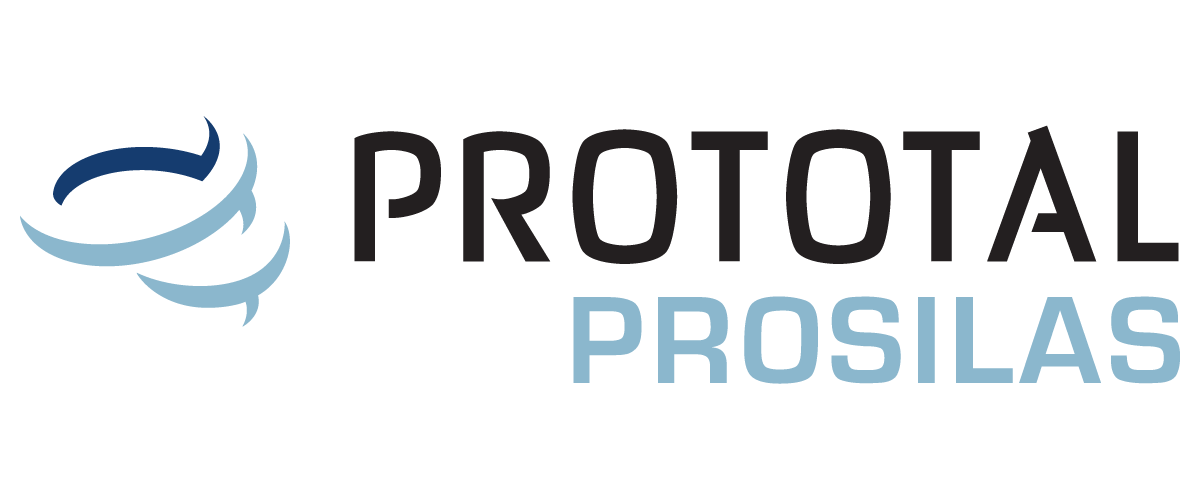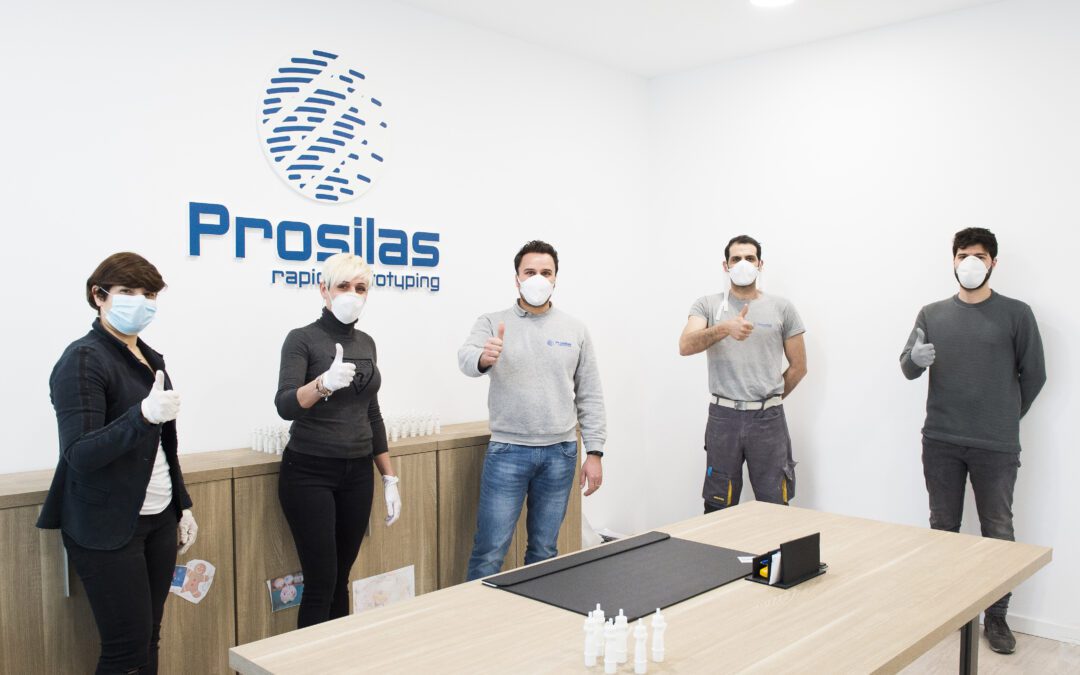
Prosilas: “We help hospitals by printing spare parts for lung ventilators”
A word from Prosilas during pandemic
“Since the beginning of the pandemic we have made our work available to the National Health Service, pro bono”. Vanna Menco, Ceo Prosilas
“Vanna Menco, Ceo Prosilas, leader company in 3D printing, based in Civitanova Marche: “Since the beginning of the pandemic we have made our work available to the National Health Service, pro bono”. Requests for help from Lombardy, Marche, Sicily and France
Just go just below the surface, the seemingly immobile surface of a country closed in the “lockdown” forced by the pandemic, to discover that there are so many companies that, in silence and pro-bono, help hospitals to keep the front line of fighting the virus.
Prosilas of Civitanova Marche is one of these: from the beginning of the emergency has been at the service of the national health system, ready to meet the most varied requests, answering “just in time” and “on demand”.
The Marche-based company is a leader in Italy in addictive manufacturing and specialist in SLS laser sintering.
Simplifying for those who are not experts in the field, it turns out complete objects or parts, printing in 3D with different materials and various technologies both prototypes and small series productions for the major realities of the automotive and lighting industry, with large companies in industry, fashion, furniture and design.
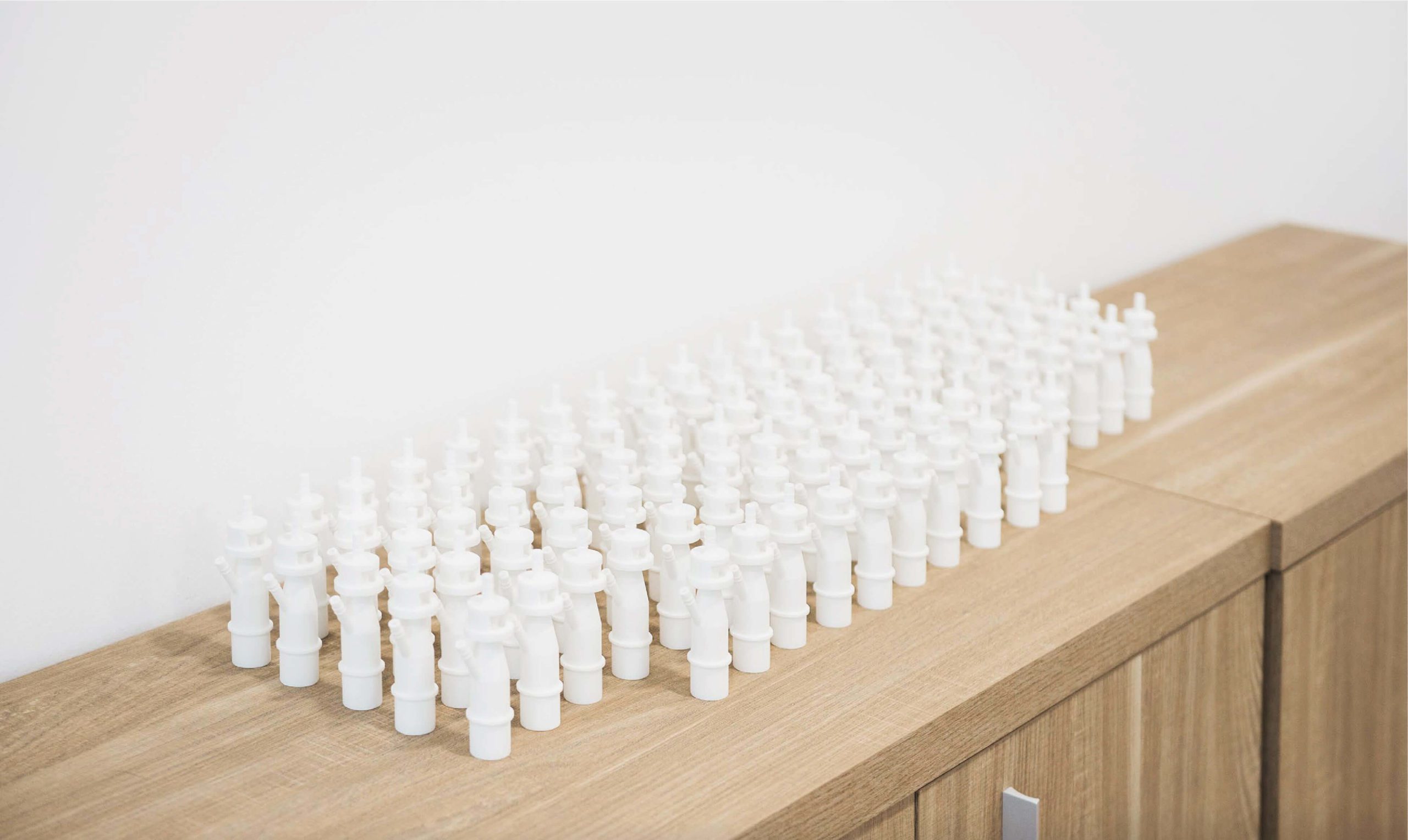
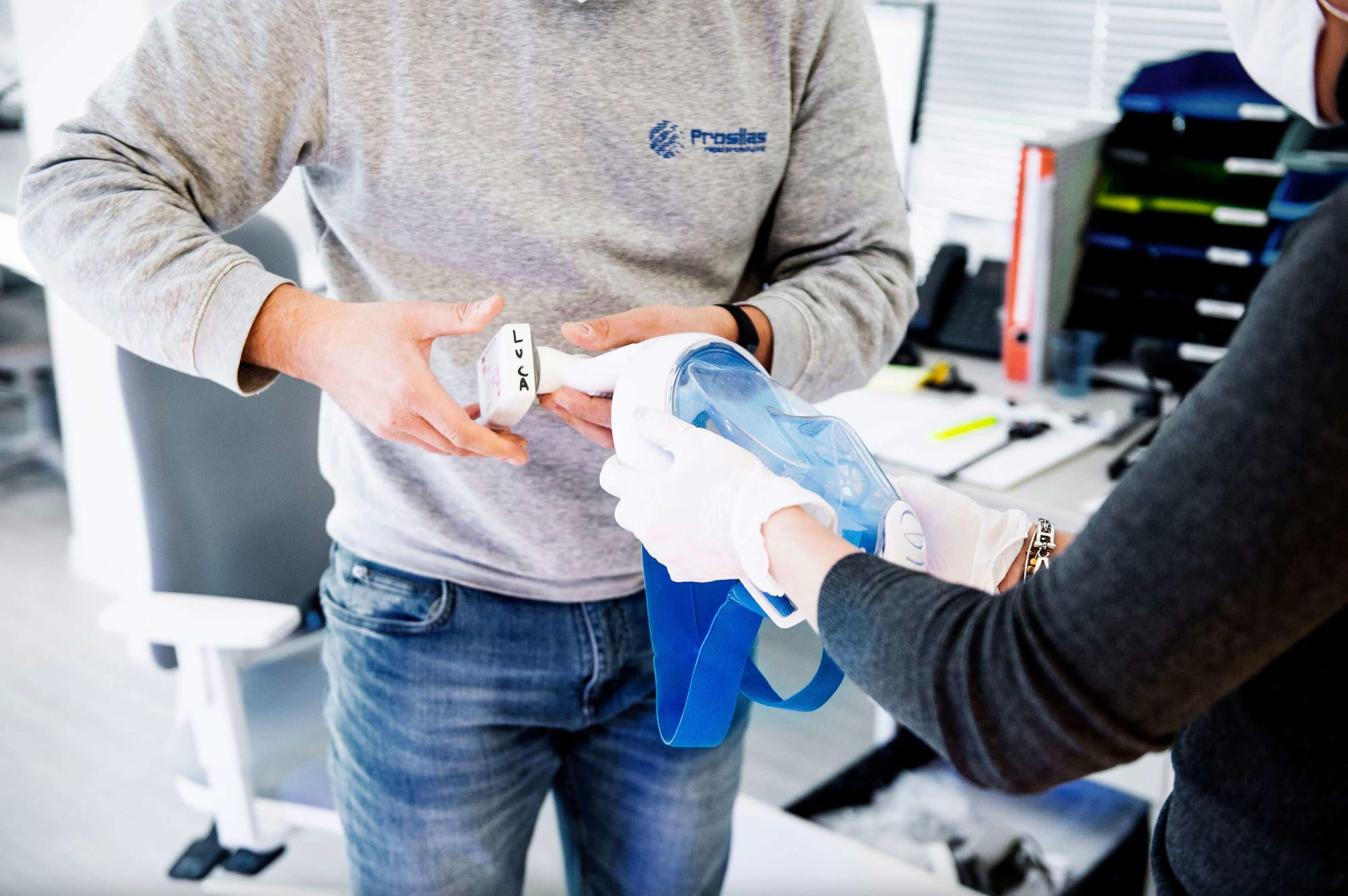
Prosilas is the largest SLS printing center in Italy and one of the largest in Europe.
“As soon as we realized the gravity of the situation, we made an announcement on Ansa “- says Vanna Menco, Ceo of Prosilas sicne 2008, daughter of the founder Giulio Menco – “together with Francesco Puzello, the consultant who acts as a central point of contact for the network of companies with which we collaborate. We are available to produce spare parts for devices that are used in intensive therapies, from fans to adapters”.
Prosilas has been contacted directly by hospitals rather than the ALS“We have been contacted by doctors of hospitals in Lombardy –continues Menco -, those who are in the ward, asking us informally to produce some spare parts for pulmonary ventilators, about a hundred. Someone knew us, someone found us on the Internet. Or companies and designers we already worked with, who asked us for help for hospitals in their area”.
Prosilas and the research
It is not the first time that Prosilas has put itself at the service, with devices of excellence, of healthcare: at the end of 2019 it earned the headlines for having saved the life of a five-year-old child with a collapsed windpipe. Responding to the research launched by the pediatric hospital Bambino Gesù in Rome, Prosilas printed a customized stent, starting from a three-dimensional file extrapolated from a CT scan and using a biocompatible material, then absorbed by the tissues.
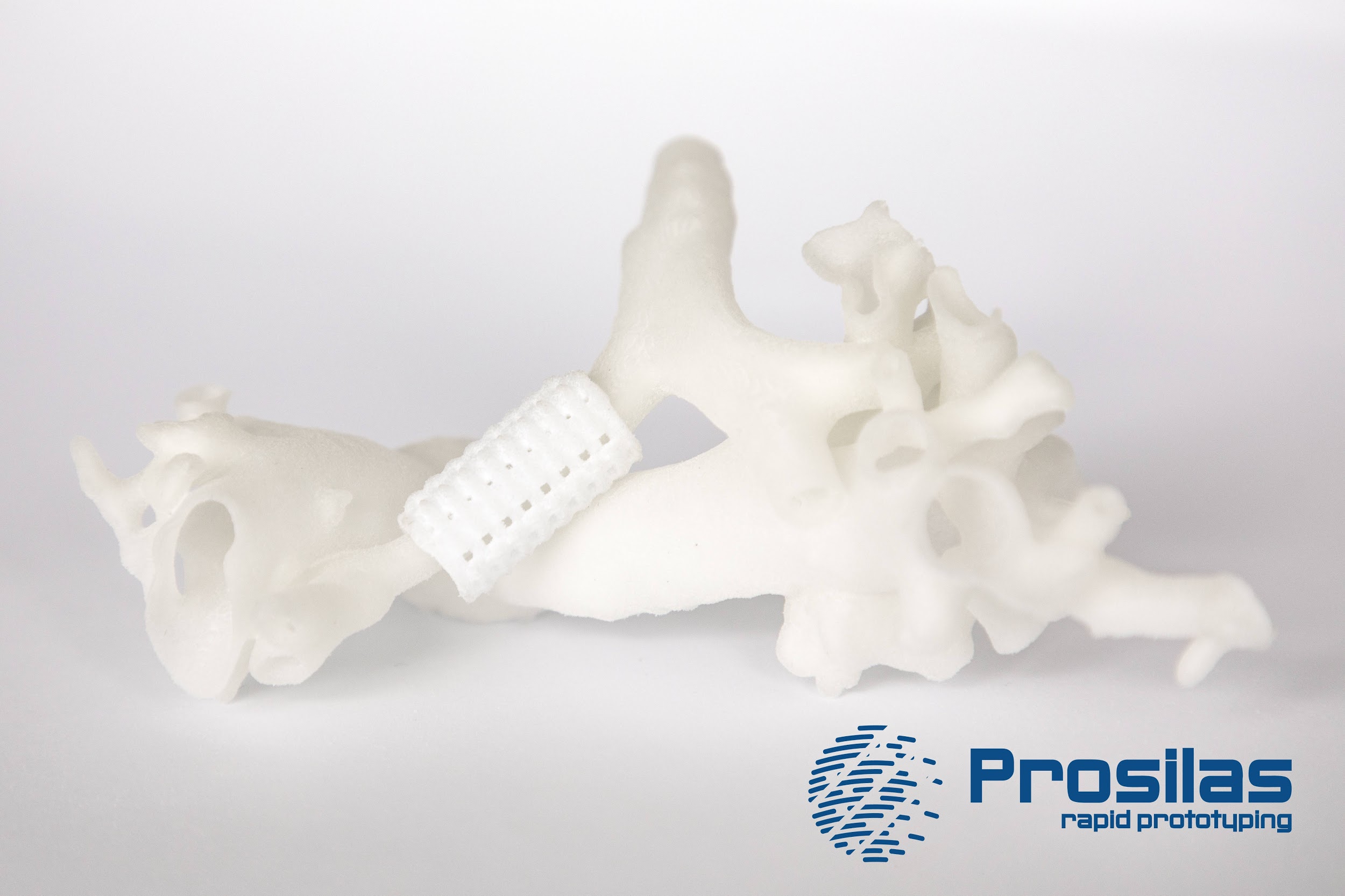
3D printing at the service of medicine
The Torrette hospital in Ancona looked for them because it needed adapters for oxygen flow-meters, spare parts that they could not find anymore, since the companies that produce them are struggling to manage the boom in demand.
Vanna Menco continues to list the territories that asked for help: “They called us from Sicily. And also from abroad, from France: our French customers ordered valves to deliver them directly to the hospitals in their country”.
Prosilas also collaborated with Cristian Fracassi, CEO of Isinnova, the 3D engineer who became famous because he invented the way to transform the Decathlon snorkeling mask into a respirator.
“In the world of 3D printing we all know each other, it is a small world, we have worked with many of our colleagues from all over Italy.If I may, I would suggest not to use too many so-called ‘makers’ – warns Menco -, non-professional printers, because it would jeopardise the safety of the devices. Humanly the enthusiasm with which they responded in many was wonderful, but the materials and processes used not certified could create problems. For now it has not been so, fortunately, but you have to be careful”.
The company of Civitanova Marche has remained open, even if in reduced ranks – 5 out of 18 employees still go to work – to finish some orders but above all to make itself useful to the sanitary, others follow in smartworking.
“This emergency does not end quickly. It would be appropriate to establish a more formal network at European level – she reasoned – among all the professional press centres.The problem of the parties is throughout Europe: it would be helpful for hospitals to have a contact person or a list to know which company is closest to which you can ask to print, since travel between countries is now almost interrupted”.
In the face of the emergency Prosilas works pro-bono, in the case of larger quantities reserves the right to ask for the costs of the material, in perspective, however, the health sector could prove one of the most promising, strategically looking to the future:
“Why not? We guarantee tracked and certified supplies. We had been investing for some time to increase production in the health and wellness sector”.
From: “Prosilas: “Aiutiamo gli ospedali stampando ricambi per i ventilatori polmonari” l’imprenditore, 02 apr. 2020, https://www.limprenditore.com/menco-prosilas-aiutiamo-gli-ospedali-stampando-ricambi-per-i-ventilatori-polmonari
